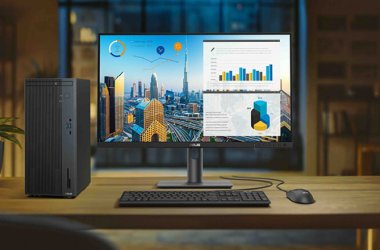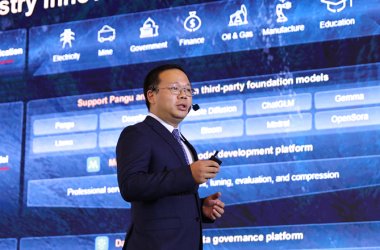
Innovations, born out of disruption, will impact and improve the way we fly, sleep, eat, and experience the world in the years ahead. COVID-19 proved to be a generational disruptor, and for travel and hospitality, survival was the order of the day. Companies grappled to preserve liquidity while attempting to navigate the crisis.
While companies vied with cost control, customers didn’t relax their expectations. No, they demanded fast responses from airlines, restaurants, and hotels on such specific needs as refunds, deliveries, and clarification on changing rules.
Whilst too early to draw a line under this tumultuous period, we can look back on what we’ve learned, and forward to what we can achieve. Success will belong to those who capitalise on these learnings and grab the future with vigour and agility.
Yes, the cloud features here, but it is a combination of culture, leadership, and technology which has differentiated companies’ progression through the pandemic.
The crisis was a wake-up call to many that customer-obsessed decision-making triumphs over slow, introspective organisations. It’s not just about reacting to crises, but about continually responding to and delighting your customers.
Finding Common Threads of Success in Enterprise Leadership
We have been privileged to talk to thousands of C-Suite leaders during the pandemic. Their ability to rapidly deliver solutions was amazing. In the industry I have the most affinity to, restaurants, the pivot to delivery was notable.
Examples abound: Domino’s Pizza Enterprises’ Project 3TEN using Machine Learning to predict and rapidly delivery pizzas safely to their customers, McDonald’s brisk scaling of home delivery to over 30,000 restaurants, and Taco Bell enabling delivery using AWS serverless technology to minimise unnecessary infrastructure work and cost.
The use of technology was impressive, but another theme also caught my attention: a different style of leadership, one that liberates employee potential, promotes customer-centricity, and sets bold goals. These are the hallmark characteristics we look for in our own leaders at AWS.
These leaders are ones who understand that the solution to uncertainty and volatility is a stubborn vision executed through experimentation. They are leaders who get that value is delivered despite the organisational silos, not because of them. They have discovered through planning or circumstance that pushing decisions deeper down into their companies acted as an organisational force multiplier and a motivator for their employees.
They showed a deep level of concern for their customers and employees not just through the words they spoke, but through the actions they took. This could be seen at Meliá Hotels International with an innovative zero-contact check-in experience and Korean Air who went the extra mile to reassure customers about their health on flights.
The mantra of “it takes a crisis to trigger change” held true, but what can we learn from the past to more deliberately power the future? Here are a few thoughts from talking to our customers.
Innovate to Meet Evolving Customer Expectations and Needs
There is no returning to normal with your customers. A new bar on convenience has been set. Personalised, frictionless eCommerce is being embraced by demographics previously not engaged online. While we all hunger to get back to the physical world, much of this online uptick will remain such as premium meal delivery from restaurants and hotel’s support of hybrid virtual-physical. What do your customers and employees really want? Not what do you really want them to want?
If you survived and thrived during the pandemic, you have likely adopted some element of a digital DNA whether consciously or not. The enforced move to remote work is a common example, prompting companies to rethink how they engage with their own staff. These operating model changes need to be nurtured and embedded in your culture, fighting that desire to return to the status quo.
This is natural segue to the cloud. Electricity is critical to our businesses, but I haven’t heard a single company make the case for why they need to generate their own electricity. The same is true with the cloud. Leaders who believe differently are more than likely a little confused about the business they are in and what the cloud actually is.
I’ve heard stories of companies who couldn’t get into their data centre during the pandemic or suffered from the lack of investment in business continuity and compute elasticity. This doesn’t need to be you. Recognising the cloud as a business enabler allows you to more focus on your guests and their needs.
This isn’t just about stopping doing things; it’s also about taking different approaches. For instance, talent will be at a premium as life returns to some semblance of normality. We are already seeing difficulties in recruitment as businesses reopen, just like before the pandemic.
Where there aren’t physical workplace constraints, look for talent in places you haven’t looked before. Invest in automation whether in your functional departments or physical outlets to free up your employees to focus on the most valuable, differentiated activities. Look for opportunities to bring together data for machine learning experiments to reimagine areas of your business and embed a continual improvement mindset. Opportunities such as predictive maintenance and inventory forecasting can improve resilience, improve cash flow, and reduce manual processes. “I don’t have time” is not a phrase customers are willing to accept from a company that lags their demands.
All of this comes together with bold, customer-led goals from leadership, clearly and regularly communicated. I’ve taken heart from how leaders have made communication a higher priority, not wrapped in ceremonies of formal gatherings to hear words of wisdom, but more in the genuine desire to regularly connect with employees at all levels.
This inclusiveness is the new norm. The imposition of multiple management layers makes it difficult to tap into our employees’ motivation and passion. The last year gave us no choice here, treating many more employees as leaders, giving them a voice in how work needed to get done.
Whether you are a restaurateur, hotelier, airliner, create related technology, or play another role altogether, you can reinvent the customer experience and your company in some of the most people-centric industries. Don’t predict the future or wait for it to happen to you: create it.





